-
main-collection-product-grid
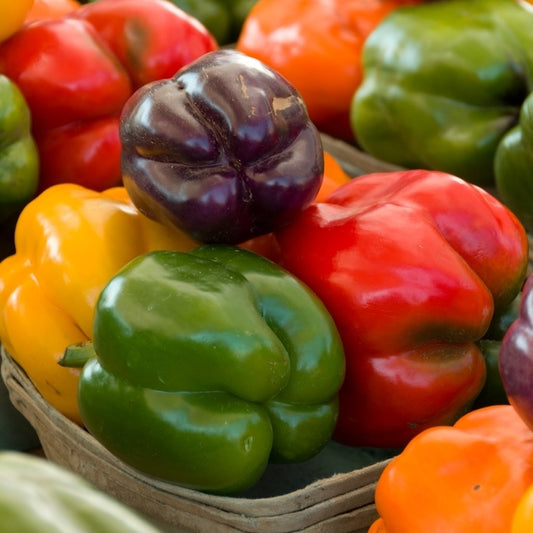
Sweet Pepper Seeds (Organic) - Rainbow Bell Blend
Colorful bells perfect for baking, grilling or stuffingSweet Pepper Seeds (Organic) - Rainbow Bell Blend
Colorful bells perfect for baking, grilling or stuffingRegular price As Low As $8.39Regular priceUnit price per -
main-collection-product-grid
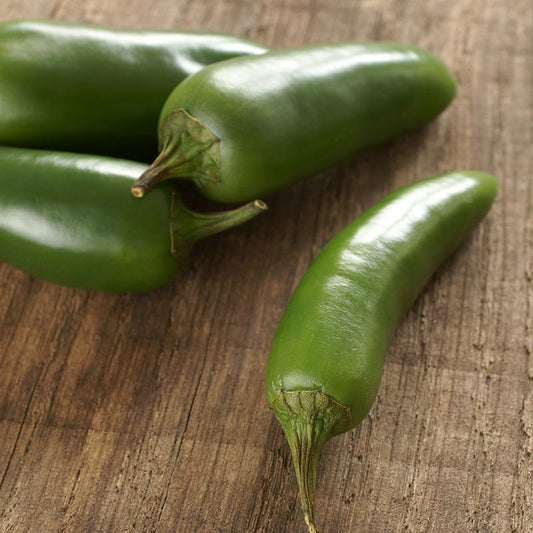
Hot Pepper Seeds (Organic) - Jalapeno Early
Medium pepper that matures quicklyHot Pepper Seeds (Organic) - Jalapeno Early
Medium pepper that matures quicklyRegular price As Low As $8.39Regular priceUnit price per -
main-collection-product-grid
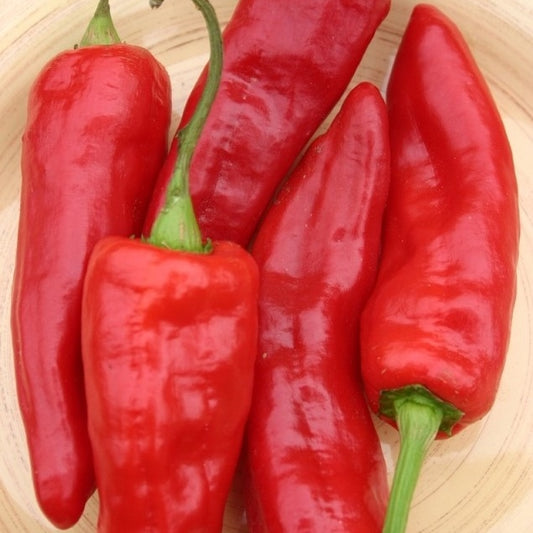
Sweet Pepper Seeds (Organic) - Marconi Red
Perfectly sweet grilling pepperSweet Pepper Seeds (Organic) - Marconi Red
Perfectly sweet grilling pepperRegular price $7.39Regular priceUnit price per -
main-collection-product-grid
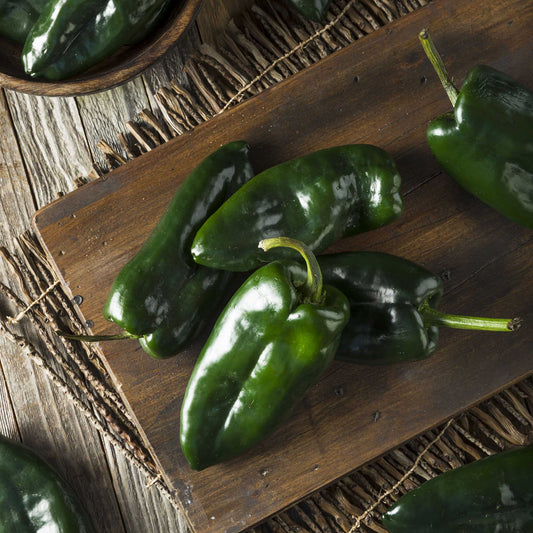
Hot Pepper Seeds (Organic) - Ancho Poblano
Mild to medium pepper best used in chili rellenoHot Pepper Seeds (Organic) - Ancho Poblano
Mild to medium pepper best used in chili rellenoRegular price As Low As $8.39Regular priceUnit price per -
main-collection-product-grid
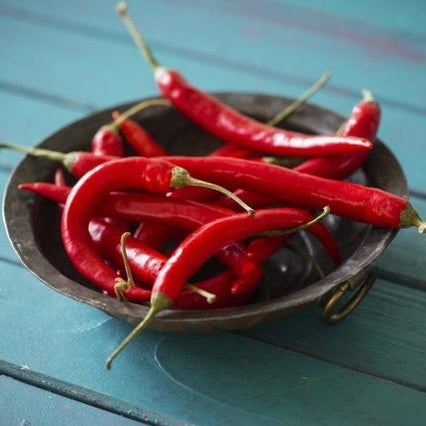
Hot Pepper Seeds (Organic) - Cayenne Long Red Thin
Best used dried and ground into a spiceHot Pepper Seeds (Organic) - Cayenne Long Red Thin
Best used dried and ground into a spiceRegular price As Low As $8.39Regular priceUnit price per -
main-collection-product-grid
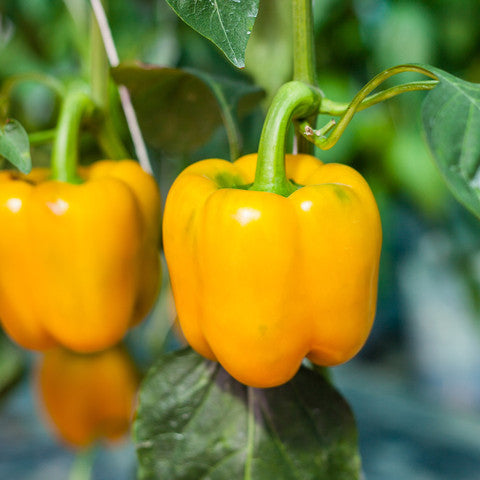
Sweet Pepper Seeds (Organic) - Golden Cal Wonder
Golden peppers perfect for stuffing or grillingSweet Pepper Seeds (Organic) - Golden Cal Wonder
Golden peppers perfect for stuffing or grillingRegular price As Low As $8.39Regular priceUnit price per -
main-collection-product-grid
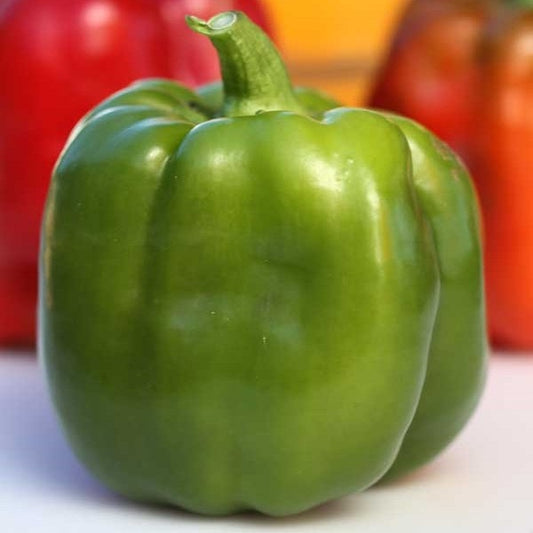
Sweet Pepper Seeds (Organic) - Emerald Giant
The perfect stuffing pepperSweet Pepper Seeds (Organic) - Emerald Giant
The perfect stuffing pepperRegular price As Low As $8.39Regular priceUnit price per -
main-collection-product-grid
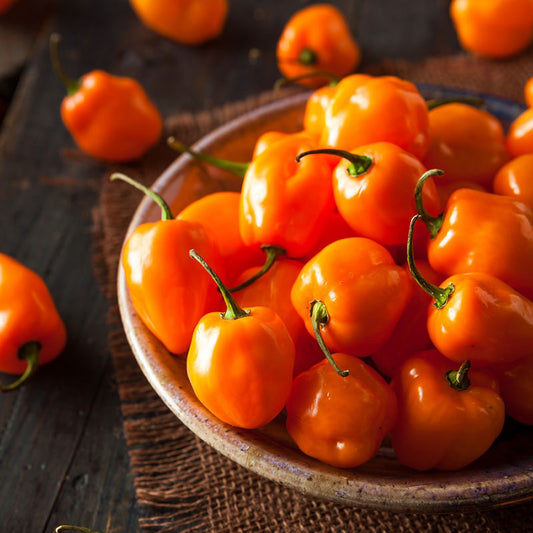
Hot Pepper Seeds (Organic) - Habanero Orange
High yielding, extremely hot pepperHot Pepper Seeds (Organic) - Habanero Orange
High yielding, extremely hot pepperRegular price As Low As $8.39Regular priceUnit price per -
main-collection-product-grid
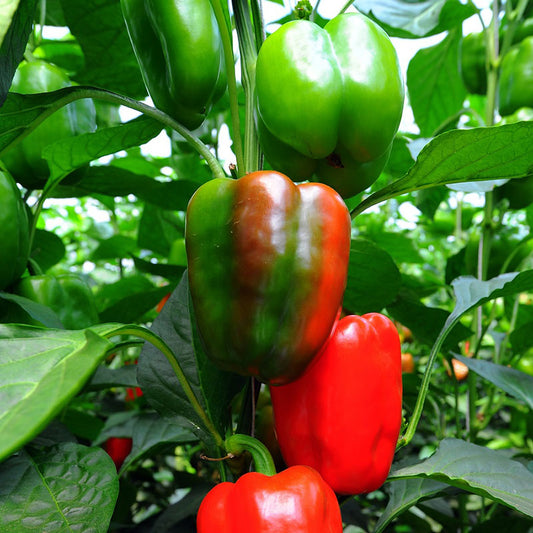
Sweet Pepper Seeds (Organic) - California Wonder
Time-honored sweet bell seen in most summer gardensSweet Pepper Seeds (Organic) - California Wonder
Time-honored sweet bell seen in most summer gardensRegular price As Low As $8.39Regular priceUnit price per -
main-collection-product-grid
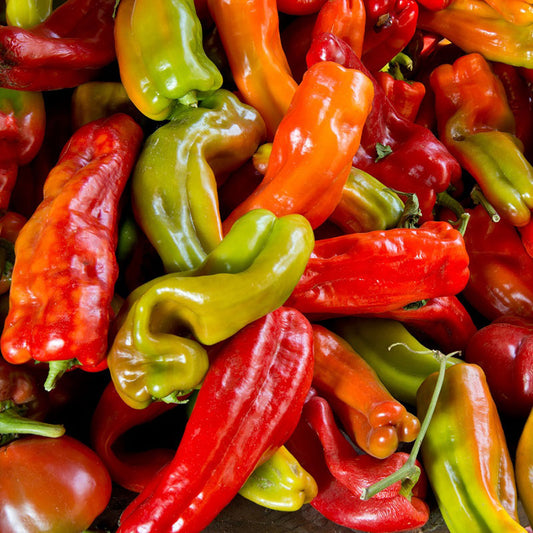
Hot Pepper Seeds (Organic) - Anaheim Chili
High yielding mild to medium chiliHot Pepper Seeds (Organic) - Anaheim Chili
High yielding mild to medium chiliRegular price As Low As $7.39Regular priceUnit price per -
main-collection-product-grid
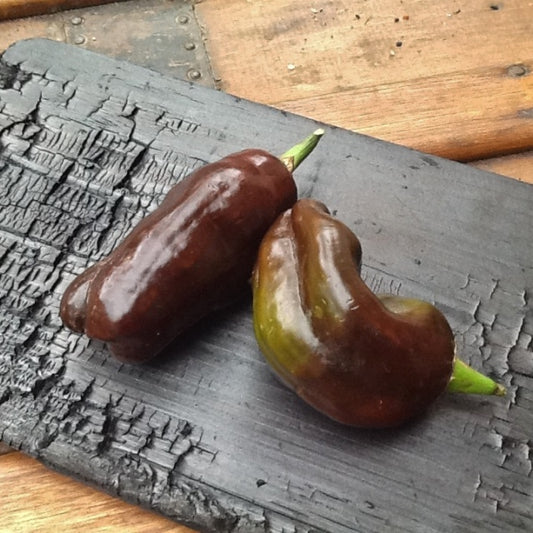
Sweet Pepper Seeds (Organic) - Sweet Chocolate
Thick, sweet taste ripening from green to chocolateSweet Pepper Seeds (Organic) - Sweet Chocolate
Thick, sweet taste ripening from green to chocolateRegular price As Low As $8.39Regular priceUnit price per
What we love about organic peppers
- 11 organic pepper seed varieties
- Great for container gardens
- Self-pollinating and thrive in warm or hot environments
- Colorful, tasty, and add versatility to any dish
The best organic peppers offer great variety
Choices of peppers at the supermarket are often limited to a few varieties—sweet bell peppers and jalapenos if you’re lucky. Wouldn't you love a little more diversity than that?
Peppers are known as one popular vegetable on the “Dirty Dozen” list. Meaning, conventionally grown peppers are likely to be contaminated with chemicals. Instead of buying pricey, polluted peppers at the supermarket, why don’t you grow your own this year?
How to grow organic peppers at home
These heat-loving annuals are hardy in zones 4 through 10. Organic peppers can be direct-seeded or started indoors two months before the last spring frost, but wait until the soil is at least 70. Be patient—peppers take some time to mature and produce fruit, but the wait is so worth it!
Companion plants for organic peppers
Organic peppers resist many common pests, and this makes peppers a friend of many other vegetables in your garden. Consider intercropping varieties like Anaheim chili with radishes, chard, or carrots—these crops help control weeds and are harvested before peppers, allowing pepper plants to expand to fill the space. Just take care to not overwater the pepper plants, as they are susceptible to root rot. If you live in colder climates, you can still enjoy garden-fresh peppers! Try using landscape fabric or grow your peppers under plastic for the healthiest plants.
When to harvest organic peppers
Start organic peppers in groups of three, and eventually thin one out and transplant the remaining two together. Space pairs about a foot and a half apart. Some organic pepper varieties appreciate the support of a stake or wire cage. Mulching the row with wood chips or straw will retain moisture in the soil, which also works to the plants' benefit. Harvest organic peppers when the fruit fills out and ridges appear. Organic peppers may be harvested when green, but the flavor improves when the fruit turns orange and red.
Organic chili peppers are loaded with Vitamin C and anti-inflammatory agents. Eating organic peppers may also lower high blood pressure and soothe digestion. Not only that, but chili peppers also contain cancer-fighting compounds and work to mitigate migraines and sinus infections!
Freeze organic peppers for future meals
There’s no reason not to grow your own when organic peppers are so low-maintenance. Include organic peppers in the garden alongside your organic tomatoes and organic onions. Just think of all the salsas you’ll make, stuffed bell peppers, and grilled chilies all summer long! Chopped peppers freeze well, so when you’re eating chili and roasted bell peppers in midwinter, you’ll be tasting your summer garden.
Eden Brothers carries more than six varieties of sweet peppers and hot chiles! Why not trial them all this season?
For more information about planting, growing, and harvesting organic pepper seeds, see the Pepper Seeds Planting Guide.










